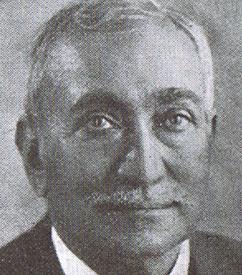
Abdullah Yusuf Ali was born on 4 April 1872, in Surat, a textile town in Gujrat, West India, which formed part of the ‘Presidency of Bombay’ in the days of the Raj. He belonged to a mercantile community know as the Bohras, who trace their Muslim ancestry to the efforts of preachers despatched by the Fatimid caliphs in Cairo. He died in London in St. Stephen’s Hospital in Fulham on 10 December 1953.
Yusuf Ali came into prominence in the Great War for his outspoken support of the Indian contribution to the Allied effort, and in the decades to follow established a reputation within India and internationally as an educationalist. Sir Muhammad Iqbal sought him out as principal of Islamia College, Lahore. Yusuf Ali is most famous in the English-speaking Muslim world for a major work of twentieth century Islamic scholarship – his The Holy Qur’an: Text, Translation and Commentary, published in 1934.
Twice-married in England and with many British friends, Yusuf Ali belonged to East and West. These personal ties accompanied a quest for a harmonious world order and he was a notable supporter of a variety of fraternities.
His public acclaim contrasted with a troubled domestic life and a sense of despair. He turned to the Qur’an for peace of mind and found healing. He then wrote as a man inspired, deploying his literary skills as a prism for the gleams of enlightenment and spiritual upliftment he experienced. His job as a college principal and his political allegiances also shaped his Qur’anic scholarship.
Yusuf Ali had an abiding faith in the British and could not foresee the sudden end of Empire. World War II found him again as a publicist for the Allied cause. His last years in London were lonely and tragic. Yusuf Ali’s is a life story that conveys the impact of colonialism and the struggles and aspirations of an earlier generation of Muslims. M. A. Sherif
Further reading
Searching for Solace, A Biography of Abdullah Yusuf Ali, Interpreter of the Qur’an – M. A. Sherif; Islamic Book Trust, Kuala Lumpur, first published 1994.
Circumstance, Inner Light and Human Agency: Reflections on the life and times of Allama Yusuf Ali, 1872-1953 – First Abdullah Yusuf Ali Memorial Lecture – M. A. Sherif; Islamic Book Trust, Kuala Lumpur, 2008 – click here
How the British Empire abandoned its most vocal Muslim supporter – Saad Hasan, 2019 – click here
The Translators: Marmaduke Pickthall,Yusuf Ali and the Qur’an – Steve Noyes, 2019 – click here – site registration required
The ELM Archives Collection and five translators of the Qur’an – Jamil Sherif, 2019 – click here
Also of interest
The Secret Lives of a Secret Agent, The Mysterious Life and Times of Alexander Wilson – Tim Crook; Kultura Press, 2010
Alexander Wilson was a British undercover agent who worked at Islamia College during Abdullah Yusuf Ali’s second tenure as its Principal. After leaving Intelligence work, Wilson became a writer of spy fiction. In his biography of Wilson, Professor Crook writes:
“[In fact] Wilson clearly portrayed the real Abdullah Yusuf Ali in his sympathetically drawn character ‘Mahommed Abdullah’, in The Devil’s Cocktail and many of Wilson’s descriptions of the fictional Sheranwala College exactly match the characteristics of Islamia College set out in the Punjab University Enquiry Committee, 1932-33 report. Wilson derived the fictional college’s name from ‘Sheranwala Gate’ the location in Lahore of Islamia High School.
Wilson’s fictional Abdullah is the mirror of the real Yusuf Ali: ‘. . . the new Principal of Sheranwala College was a man of very deep learning. He had taken his Master of Arts degree at Cambridge, was a barrister, a retired financial commissioner, and an eminent economist. At the end of the interview Shannon [of the British Secret Service] had acquired a deep respect for the quiet-mannered little man, who had proved so adept in questioning him.”
The Forgotten Army – India’s armed struggle for Independence 1942-45 – Peter Ward Fay; University of Michigan Press, 1995
This account features Rashid, Abdullah Yusuf Ali’s son from his second marriage, to Masuma (Gertrude Anne Mawbey). He served in a unit responsible for interrogating fighters of the Indian National Army captured in Assam and Burma. Rashid Ali was later ADC to Sir Muhammad Saleh Akbar Hydari, Governor of Assam and retired as a Colonel of the Frontier Corps, Indian Army. Rashid’s first wife was the daughter of Sir Akbar Hydari, Saleh’s father.
The Scarlet Angel – the story of a seven thousand mile journey chiefly in a single seater light aeroplane Alban Ali; Duckworth, 1934
Alban Ali was one of Abdullah Yusuf Ali’s sons from his marriage to Teresa Mary Shalders. He flew what was the world’s smallest plane at the time from England to Assam, where he also was a tea planter.
Archival Sources
The National Archives, FO 371 series
The East London Mosque Archives, Jamiat ul Muslimin files & M.A. Sherif deposit
